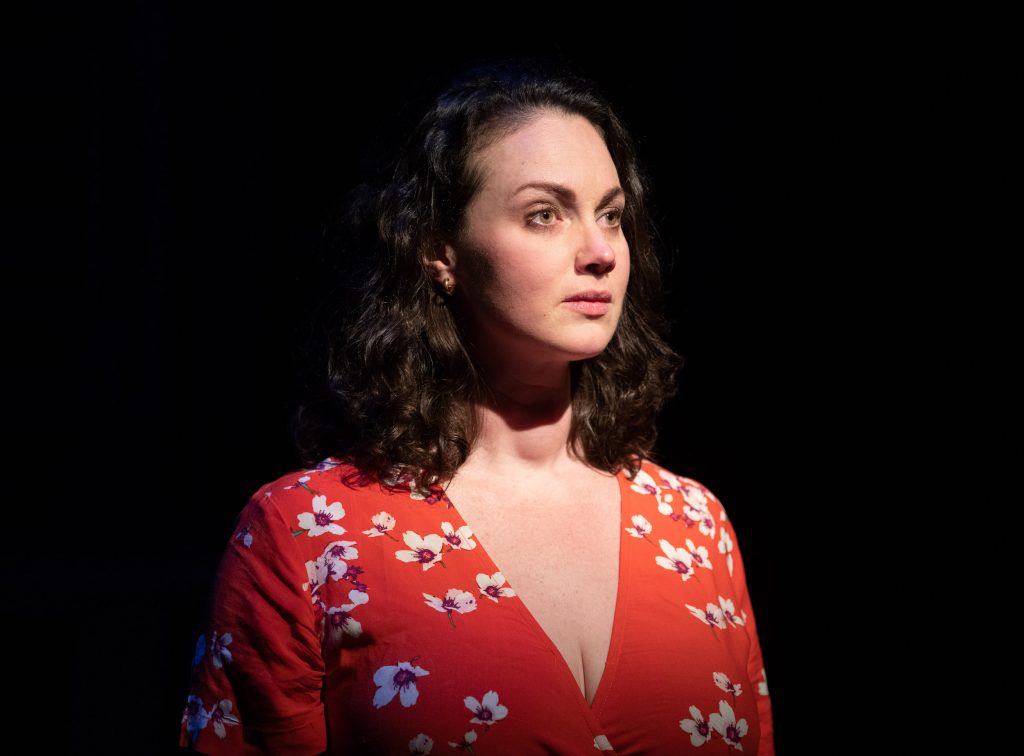
Credit: Emily Cooper
VANCITY CULTURE LAB at The Cultch. No more performances
Posted March 30, 2022
Writing about human sexuality – especially female sexuality – is a minefield so kudos go to playwright Hannah Moscovitch for wading into such provocative territory: women who love sex and go looking for lots of it. And huge accolades go to actor Emma Slipp who so thoroughly embraced Moscovitch’s character Sorrel, otherwise known as Bunny (because, as her only friend Maggie remarks, Sorrel has a nervousness about her that’s rabbit-like.) There’s also the hint of the Playboy bunny here: the boobs, the possibility of available sex.
Bodacious Slipp, who seems to have stepped right out of a Botticelli painting (but fully clothed in a flaming red floral dress), found her character’s awkward balance between horniness and innocence with aplomb. As a teenager, for example, Sorrel believes the noise she makes during sex, cannot be heard by others. She’s the smartest kid in the school but she’s surprised to discover the howls she makes in her bedroom with her boyfriend are heard by her parents who, unperturbed by Sorrel’s activity, are a bit put out because they’re trying to sleep?
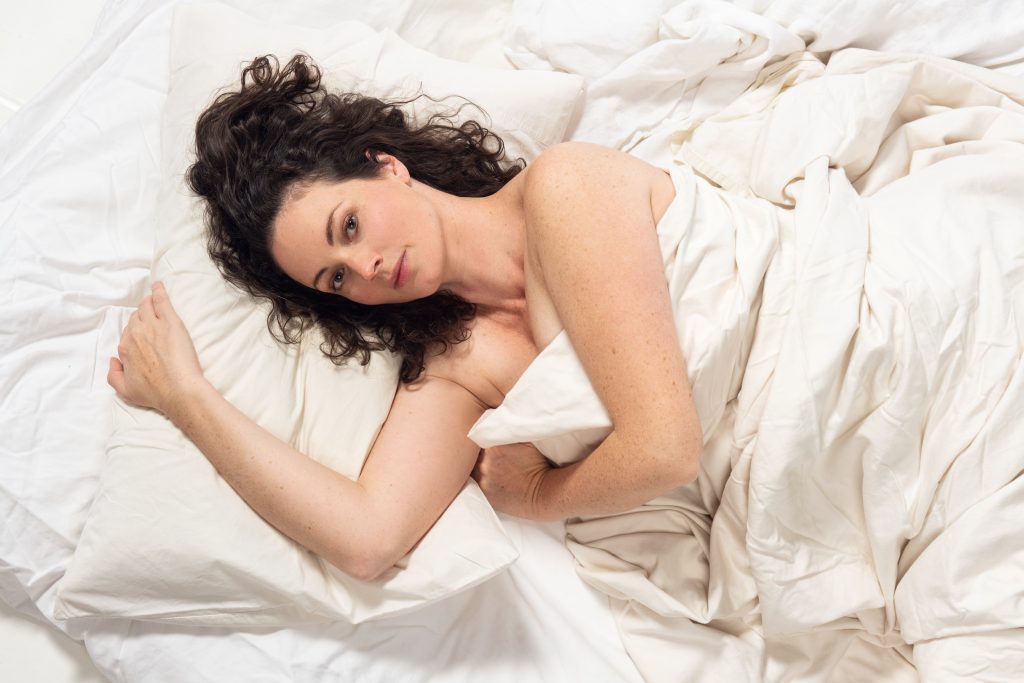
Credit: Emily Cooper
I have been watching with great pleasure Slipp’s theatre career beginning with Studio 58 and moving through the various roles and various theatre companies. One of my favourite roles she played was as Eurydice in Jeff Gladstone’s Hell of a Girl. And one of my all-time favourite lines, delivered by John Murphy – as the King of the Underworld – to Eurydice/Slipp is, “My love is like a hurricane in your basement”.
It seems that Sorrel, in Moscovitch’s Bunny, has a permanent hurricane in her basement.
I really admired this play and this production, directed by Mindy Parfitt, but I’m confused about what Moscovitch is actually trying to get at. Is the play intended to explain Sorrel’s sexual appetite as a consequence of left-leaning intellectual parents who created an isolated, friendless, nerdy child and who, once she developed bountiful boobs, was therefore vulnerable to the male gaze and much more than gaze? In other words, is lots of sex with lots of partners simply Sorrel’s way of compensating for being alienated as a child?
Or is Moscovitch attempting to point out that some women, like some men, just like fucking and being fucked and society punishes them for it by calling them sluts, whores and worse. If the latter is the case, I think her argument is undermined by Sorrel’s backstory. Why not a heroine who is not lonely, not needy or not nerdy who just likes sex? A modern day Don Juana.
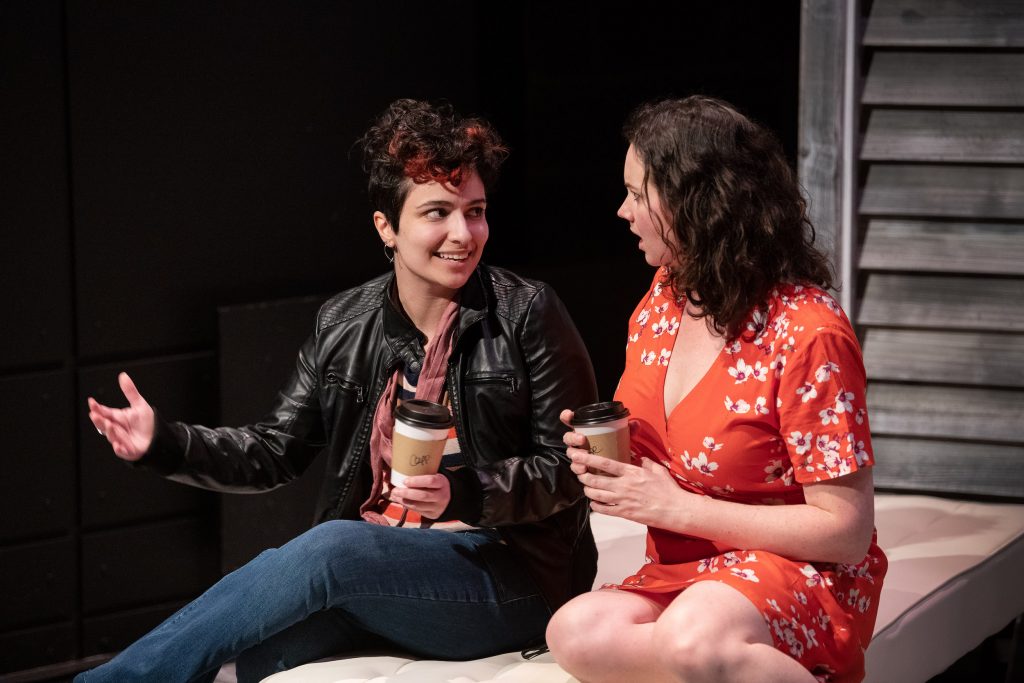
Credit: Emily Cooper
Slipp was supported by a very strong cast most notably Ghazal Azarbad as Sorrel’s friend Maggie. Azarbad nicely underplayed the role in the lead-up to what, in less capable hands, could have been melodramatic. Liam Stewart-Kanagan was hapless Justin, carelessly dumped by teenaged Sorrel when she’s done with him, telling him he was a good “first boyfriend”; Jay Hindle was the professor who can be seen as both preyed upon and predatory; and Nathan Kay was Angel – possibly appropriately named, depending on your point of view. Does he inadvertently deliver Sorrel out of a sort of self-created Hell? Pamela Carolina Martinez was young, giddy Lola.
Kayvon Khoshkam as Carol, Sorrel’s patient husband, gave a wonderfully subtle performance; calm and contained in the midst of Sorrel’s chaos.
Presented by The Search Party, set design – a series of louvred barnwood panels – was by Amir Ofek with lighting by Ital Erdal who created some beautiful, leafy/watery effects in the canoe scenes that form the book ends to the play.
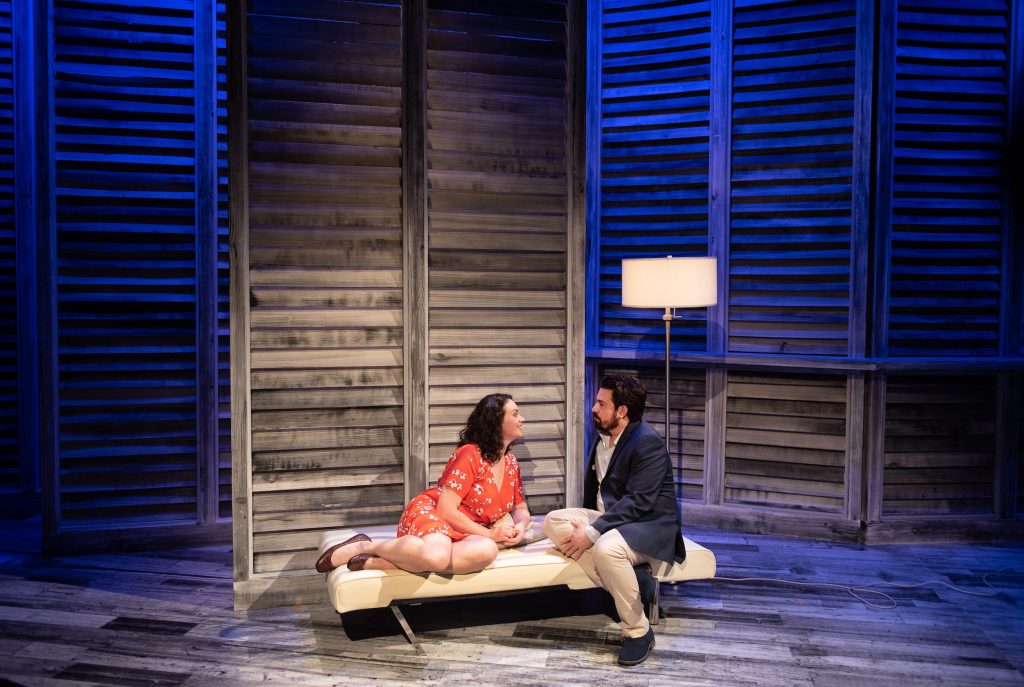
Credit: Emily Cooper
The action takes place across time from Sorrel’s adolescence in flashbacks to soliloquys in her late 30s by which time she’s married and has two children. Slipp addressed the audience directly as adult Sorrel who always refers to herself in the third person. At the very beginning of the play and again near the end of the play, Sorrel is sorely tempted to have sex with Angel, the very young boyfriend of Lola, her best friend’s daughter. Slipp looked out at the audience and asked us whether Sorrel should or should not. At the performance I attended one woman hollered a very enthusiastic, “Yes” and another, “No”. Both were greeted with laughter.
For the first time, I saw a credit to ‘intimacy professionals’. The mandate of the company, Principal Intimacy Professionals, is to promote “growth within the theatre, television and film industries through the development of new protocols and techniques for scenes of intimacy, simulated sex, and nudity. [They] strive towards brave and compelling performances supported by a safe environment cultivated by mindful professionals.” At least a couple of scenes in Bunny required the deft direction of Phay Moores and Sam Jeffery to make the scenes both believable and respectful of the actors (and the audience). Needless to say, this Bunny was not for kids.
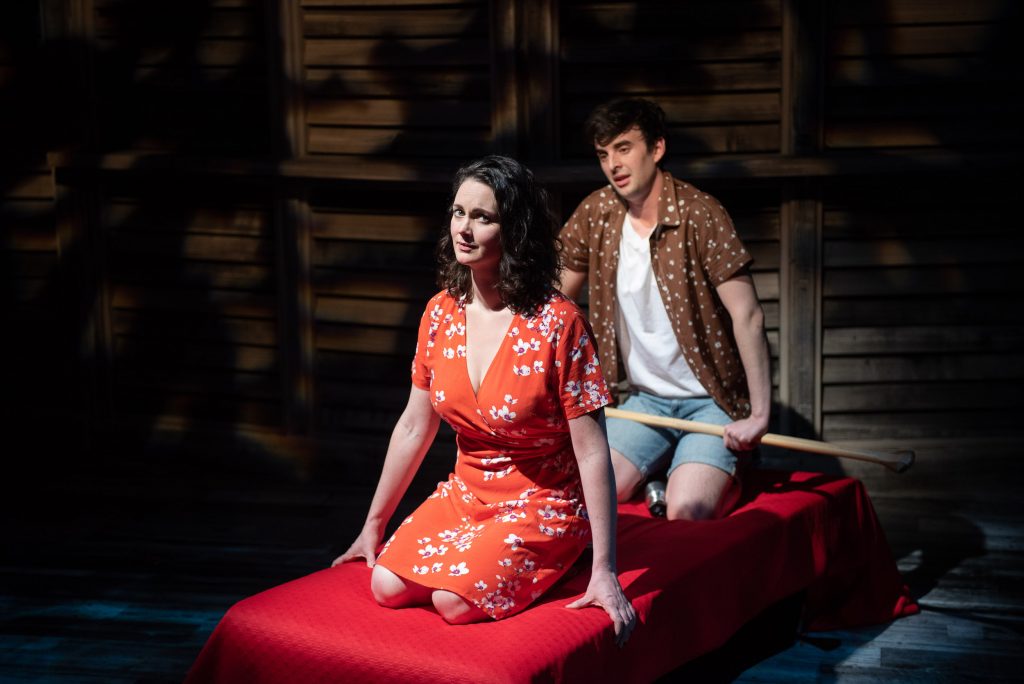
Credit: Emily Cooper
We may have come a long way, baby, but there’s still a price to be paid by women (and men) for crossing certain lines when it comes to appropriate sex partners. In Bunny, the young man’s age is not the issue; the relationship he bears to young Lola – who adores Sorrel – is.
However enigmatic, Bunny is a remarkable and brave piece of theatre. Emma Slipp was both remarkable and brave in the role.

